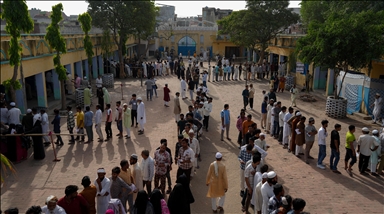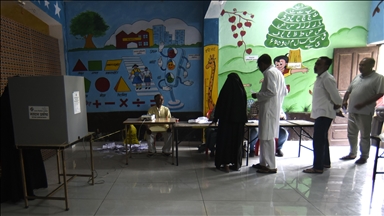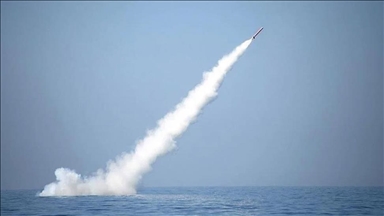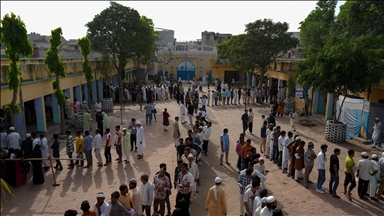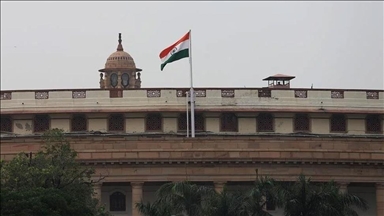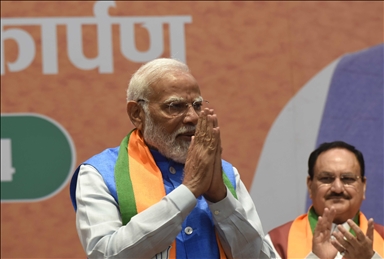India gets backlash for advisory on Kashmir students
'Barring students from seeking admission in educational institutions ... makes no sense,' says Kashmiri resistance leader
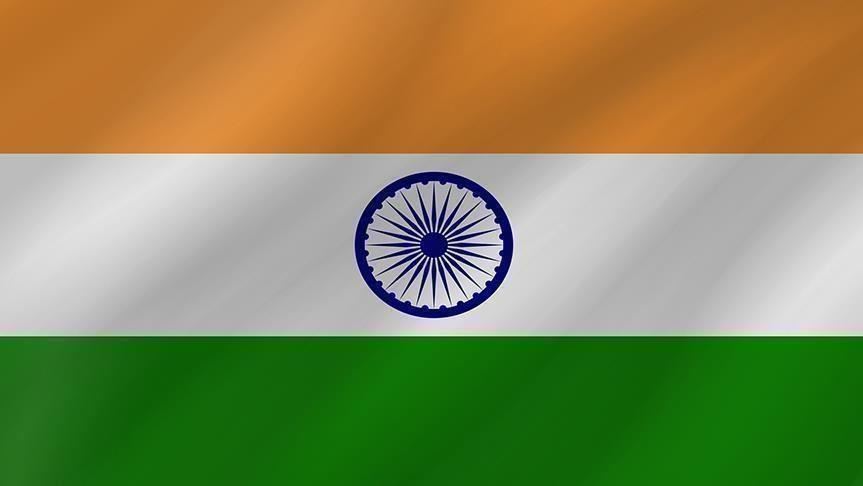
SRINAGAR, Jammu and Kashmir
India is being criticized Wednesday for asking Kashmiri students not to go for higher education to institutions in Pakistan Administered Kashmir, with many calling the move a blow to principles of a regional cooperation.
The Private Schools Association of Jammu and Kashmir (PSAJK) while condemning the directive said that it negated the basic principle of the South Asian Association for Regional Cooperation, where India and Pakistan are two signatories, including Afghanistan, Bangladesh, Bhutan, Nepal, Maldives, and Sri Lanka.
“India is part of the SAARC group and all educational institutes in all the countries should be treated at par. One cannot pick and choose educational institutes in a particular region,” PSAJK chairman G. N. Var, told reporters.
Besides affecting the education of hundreds of students, it would also have serious ramification in the longer run, he said.
“The SAARC group and all associated agreements have been honored during hostile conditions including war and suddenly asking [Jammu and Kashmir] students not to take admission in educational institutes in [Pakistan Administered Kashmir] is beyond comprehension,” he said.
The directive was passed Tuesday by India’s higher education regulators, University Grants Commission (UGC) and All India Council for Technical Education (AICTE).
"Pakistan-occupied Jammu and Kashmir [POJK] is an integral part of India. The educational institutions including universities, medical colleges, and technical institutions situated in POJK are neither established by the Indian government nor recognized by statutory authorities including UGC, AICTE and Medical Council of India," Secretary of the UGC, Rajnish Jain, said in the directive. “The students are therefore cautioned and advised against taking admission in college, university or technical institution in any territory under illegal occupation of Pakistan.”
The advisory comes at a time when about a dozen Kashmiri students are seeking admission to higher education institutes in Pakistan Administered Kashmir.
Senior Kashmiri resistance leader and chief cleric Mirwaiz Umar Farooq also criticized the directive calling it an “unreasonable diktat,” or order, and said politics should not be played with the career of Kashmiri students.
“Barring students from seeking admission in educational institutions of Pakistan Administered Kashmir, which is part of entire [Jammu and Kashmir], of which they are state subjects, makes no sense,” Mirwaiz said.
Mirwaiz said while the earlier suspension of cross Line of Control trade had greatly affected the traders of Kashmir and the economy, this “regressive move” adversely affects the students now.
However, Indian civil society activist and Executive Secretary of Center for Dialogue and Reconciliation, Sushobha Barve, told Anadolu Agency she did not know of any big colleges or universities where the Kashmiri students would have liked to go to study.
“I know of people who have wanted to go to Pakistan to study, to Lahore and Karachi, and we have even helped a few, but I don’t know why anyone would want to go to the Pakistan Occupied Kashmir,” Barve said.
Jammu and Kashmir, a Muslim-majority Himalayan region, is held by India and Pakistan in parts and claimed by both in full. A small sliver of Kashmir is also held by China.
Since they were partitioned in 1947, the two countries have fought three wars -- in 1948, 1965 and 1971 -- two of them over Kashmir.
Also, in Siachen glacier in northern Kashmir, Indian and Pakistani troops have fought intermittently since 1984. A cease-fire came into effect in 2003.
Some Kashmiri groups in Jammu and Kashmir have been fighting against Indian rule for independence, or for unification with neighboring Pakistan.
According to several human rights organizations, thousands of people have reportedly been killed in the conflict in the region since 1989.
Anadolu Agency website contains only a portion of the news stories offered to subscribers in the AA News Broadcasting System (HAS), and in summarized form. Please contact us for subscription options.


